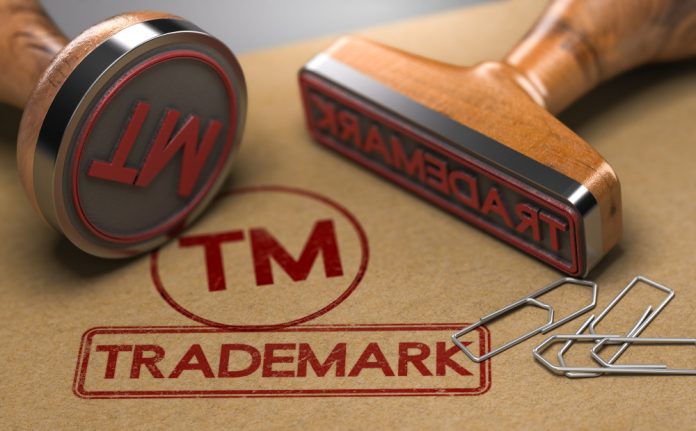This article has been written by Gauri Atreja pursuing the Diploma in Advanced Contract Drafting, Negotiation and Dispute Resolution from LawSikho. This article has been edited by Ruchika Mohapatra (Associate, Lawsikho).
Table of Contents
Introduction
Companies invest huge amounts of money in establishing their brand names and their marketing. The owners of the brand names spend large amounts of money to build on reputation and popularity to sustain in the highly competitive markets. Companies often spend enormous amounts of money on their brand name establishments and for their mark to be well known so that their marks cannot be copied via other goods and services. The establishment of a brand name as a well-known trademark helps the owner to strengthen their IP protection and to challenge any infringement and misuse of their mark either directly or indirectly in various courts and tribunals.
Infringement of trademarks
A well-known trademark is one that is well recognised by the general public (consumers, manufacturers, and all others involved in the sale and manufacture of branded goods). Because of their recognition, well-known trademarks are easy to recognise and protect, regardless of whether they are registered or not. This reputation safeguards well-known trademarks from infringing products that:
- Are an imitation of trademarked goods.
- Imitate or replicate the protected trademark.
- Make it unclear if the goods and services are imitations or genuine things bearing the well-known trademark.
Though most of these laws apply to infringing products in the same industry as the well-known mark, other nations take into account infringing goods and services that aren’t identical to the protected goods and services. Because well-known or famous trademarks are widely recognised and held in high regard, the substantial protections afforded to them are critical. Even if the infringement operates in a nation where the mark is not registered, these rules assist the mark owner in protecting their intellectual property. This safeguards both the mark owner and consumers, who may be assured that the things they’re buying are genuine.
Even though trademark law does not make any exclusion for renowned or well-known marks, it is easier for their owners to preserve their rights. Legislators are also frequently aggressive in rectifying any infringement that could harm a well-known company’s reputation. The only problem that could develop is if a trademark is well-known in one country but not in the one where it is copied.
Given the nature of our global economy, these regulations are also crucial. Infringers in nearly any country can easily advertise their products and services online by infringing on a well-known mark. The protections given to renowned marks aid in resolving the disputes that arise from infringement quickly, regardless of the infringer’s country of origin.
Definition of well-known trademark
The Trademarks Act, 1999 provides the definition of well-known trademarks. For a trademark to be well known, it has to be recognised by a considerable section of the public in relation to particular goods or services. Well-known trademarks are given special treatment that ordinary trademarks do not enjoy. This is because these well-known brands face distinct dangers and stand to lose a lot if their reputation is tarnished or their mark misused. Details regarding well-known brands and the extra attention they receive around the world are highlighted below.
How to obtain a well-known trademark?
The amended Trademarks Rules, 2017 has provided the proprietors/companies in possession of a well-known trademark an option to directly apply to the Indian Trademarks Registry for determination, declaration and registration of their mark as well-known. Though the provision of protection of well-known trademarks in India was present in the Trade Marks Rules even prior to the amendment in Trademarks Rules, 2017 the court or tribunals had discretionary power to declare the mark as well-known. There was no procedure to apply directly to the Trademarks registry for the same. Though the courts still hold the power to declare the mark as well-known or not, by applying directly to the Trademark Registry, the proprietor or owner of the Trademark at least gets their mark in the well-known category and the Trademarks registry keeps a separate list of such trademarks.
The advantage of having a mark declared as well-known is that the mark is distinct from an ordinary registered trademark in that the well-known trademark is usually known to a substantial section of the public beyond its category of goods and services and it is of significant importance to its proprietor or any business entity.
Process of registration of trademark
The process of registration of a mark as well-known with the Indian Trademarks registry is as follows:
The Registrar shall, while determining whether a trademark is a well-known trademark or not, take into account any fact which he considers relevant for determining a trademark as a well-known trademark including—
- the knowledge or recognition of that trade mark in the relevant section of the public including knowledge in India obtained as a result of promotion of the trade mark:
- the duration, extent and geographical area of any use of that trade mark:
- the duration, extent and geographical area of any promotion of the trade mark, including advertising or publicity and presentation, at fairs or exhibition of the goods or services to which the trademark applies,
- the duration and geographical area of any registration of or any application for registration of that trade mark under this Act to the extent they reflect the use or recognition of the trade mark;
- the record of successful enforcement of, the rights in that trade mark, in particular, the extent to which the trade mark has been recognised as a well-known trade mark by any court or Registrar under that record
As per the Trademarks Act, the Registrar of Trademarks shall not require as a condition, for determining whether a trademark is a well-known trademark, any of the following, namely: –
(i) that the trademark has been used in India,
(ii) that the trademark has been registered.
(iii) that the application for registration of the trademark has been filed in India.
(iv) that the trademark –
(a) is well known in; or
(b) has been registered in; or
(c) in respect of which an application for registration has been filed in, any jurisdiction other than India; or
(v) that the trademark is well known to the public at large in India.
In view of the aforementioned points, it is apparent that for the mark to be well known, the proprietor of a well-known Trademark need not to carry the business within India and even no prior registrations are required for the protection of a well-known Trademark. On the contrary, there are different regulations for foreign well-known Trademarks.
Impact of well-known trademarks on prior registered trademarks
The Trademark registry has already put on a list for the well-known Trademarks and this list will only grow in number keeping in mind how much companies ought to invest for the protection of their intellectual property. Till date, a total of 90 well-known Trademarks have been registered with the Trademarks registry. The first well-known trademark in the list is “7 O’ CLOCK” by the proprietor Gillette U.K. Ltd., England, for shaving razors. Such a mark was recognised as well-known by the Bombay High Court (reported in 1998 PTC 288 DB). Unlike other trademarks whose goodwill and reputation are limited to a certain specified geographical area and to a certain range of products, well-known trademarks have their goodwill and reputation protected across the nation and across categories of goods and services. It is a law that restricts the Trade Mark Registry to allow and register any mark as a trademark which is deceptively similar to any of the well-known trademarks.
The Indian Trademarks Rules provides protection to the well-known trademarks from the registration of identical or similar trademarks. The Registrar, while considering an application for registration of a trademark and opposition filed in respect thereof, shall have to take into consideration the bad faith involved either of the applicant or the opponent affecting the right relating to the well-known trademark. Also, the registrar has to take into consideration that if the trademark has been registered in good faith disclosing the material information to the Registrar or where right to a trademark has been acquired through use in good faith before the commencement of the Trademarks Act, then, that shall not prejudice the validity of the registration of that trademark or right to use that trademark on the ground that such trademark is identical with or similar to a well-known trademark.
Conclusion
Since the process of determining and declaring the marks as well-known has been simplified by the new amendment to the Trademarks Rules, we may expect many more trademarks to be declared as well known in the coming time. Special considerations for well-known and famous marks can assist firms in protecting their intellectual property against these issues both at home and overseas. To try to resolve a situation where a company or individual registers an infringing mark (innocently or otherwise) in a country that does not follow trademark common law, a mark owner can use evidence of use, the fact that the mark is famous or well-known, and whether the infringer acted in bad faith. Though having a well-known trademark provides additional protections beyond those provided by a conventional trademark registration, getting your mark recognised as “renowned” or “well-known” is tough. Furthermore, because there is no universal definition of a well-known mark, even a well-known corporation in one nation may find it difficult to defend its intellectual property in another.
Students of Lawsikho courses regularly produce writing assignments and work on practical exercises as a part of their coursework and develop themselves in real-life practical skills.
LawSikho has created a telegram group for exchanging legal knowledge, referrals, and various opportunities. You can click on this link and join:https://t.me/joinchat/J_0YrBa4IBSHdpuTfQO_sA
Follow us on Instagram and subscribe to our YouTube channel for more amazing legal content.
 Serato DJ Crack 2025Serato DJ PRO Crack
Serato DJ Crack 2025Serato DJ PRO Crack











 Allow notifications
Allow notifications


